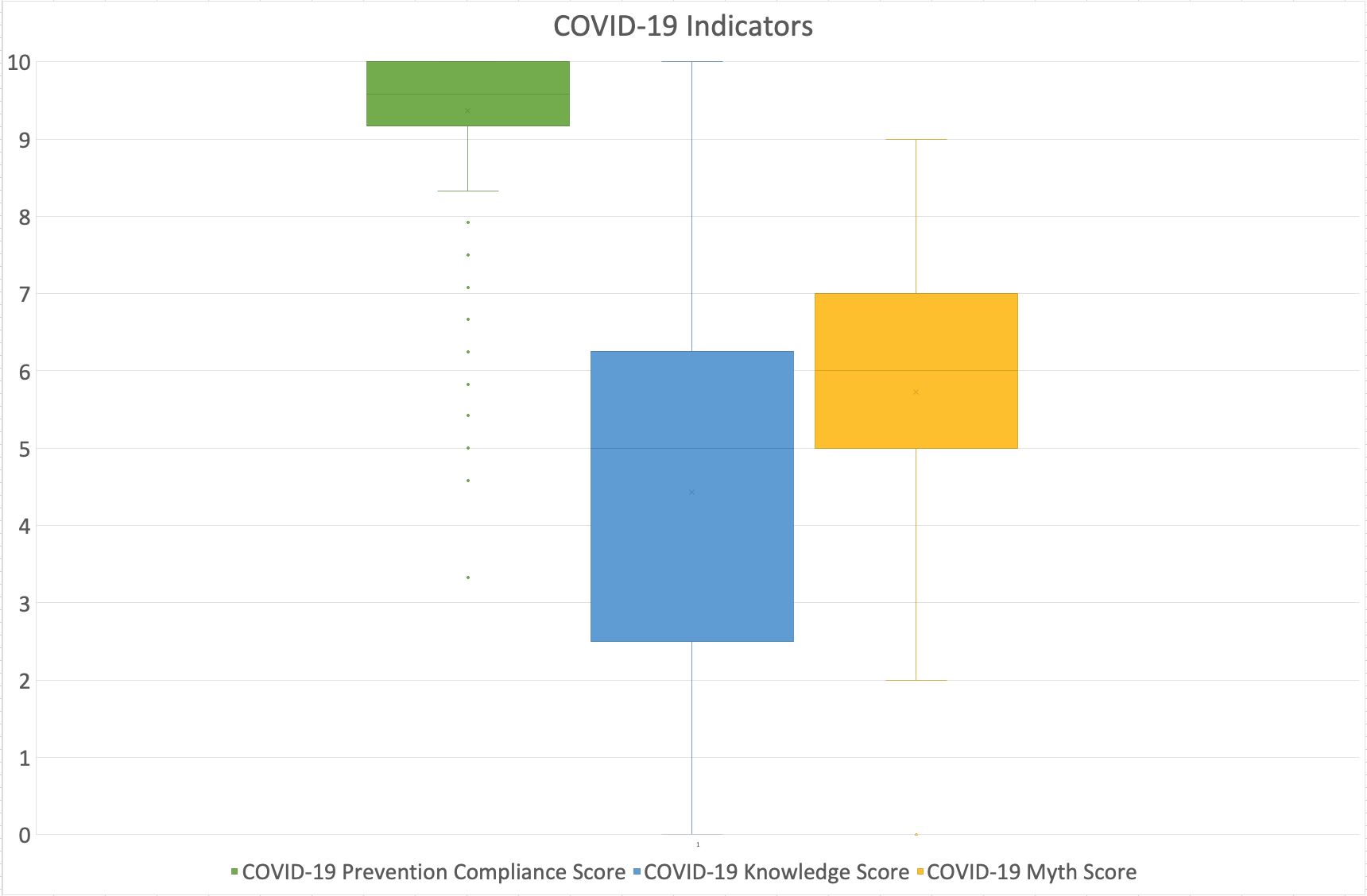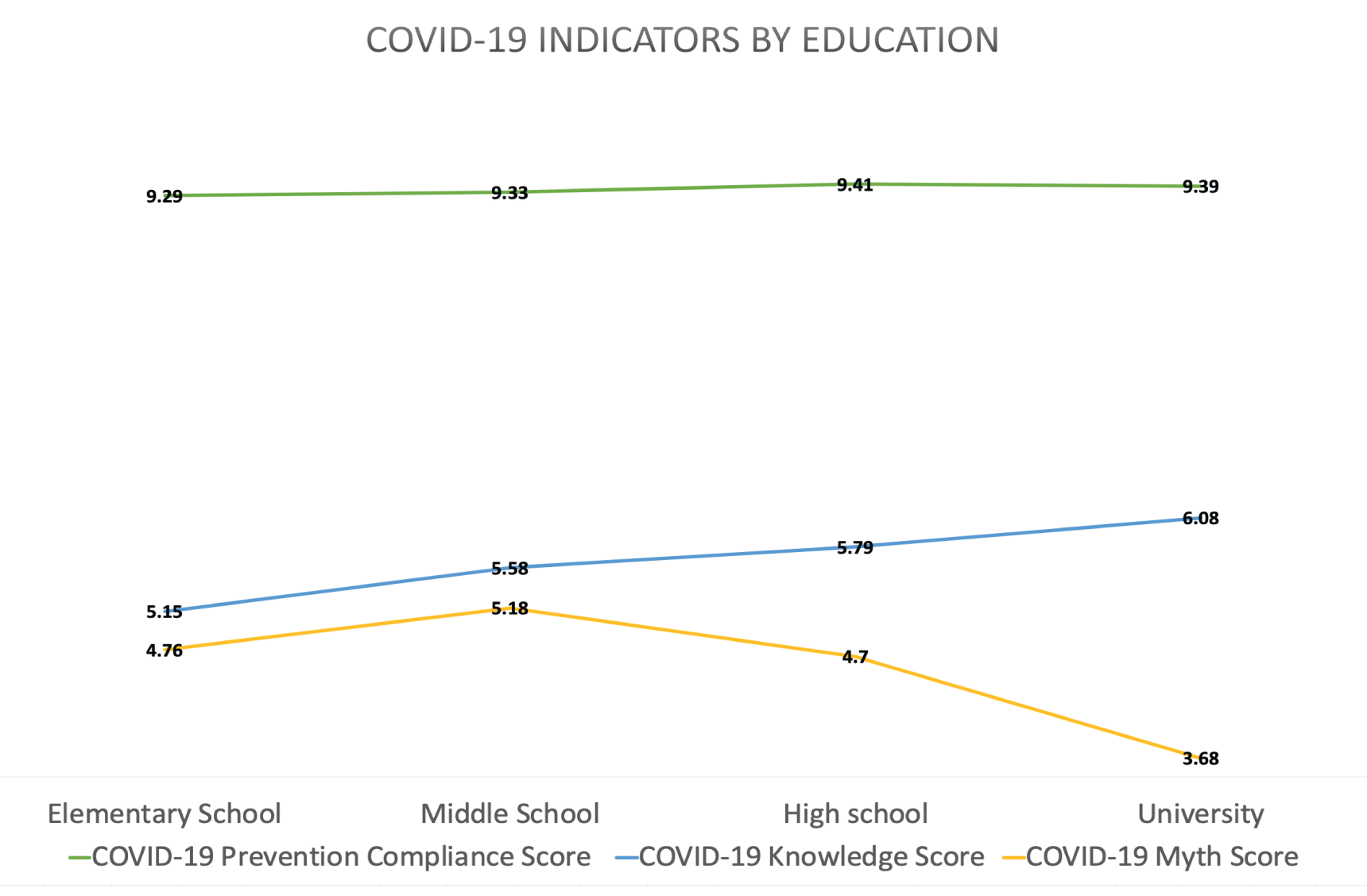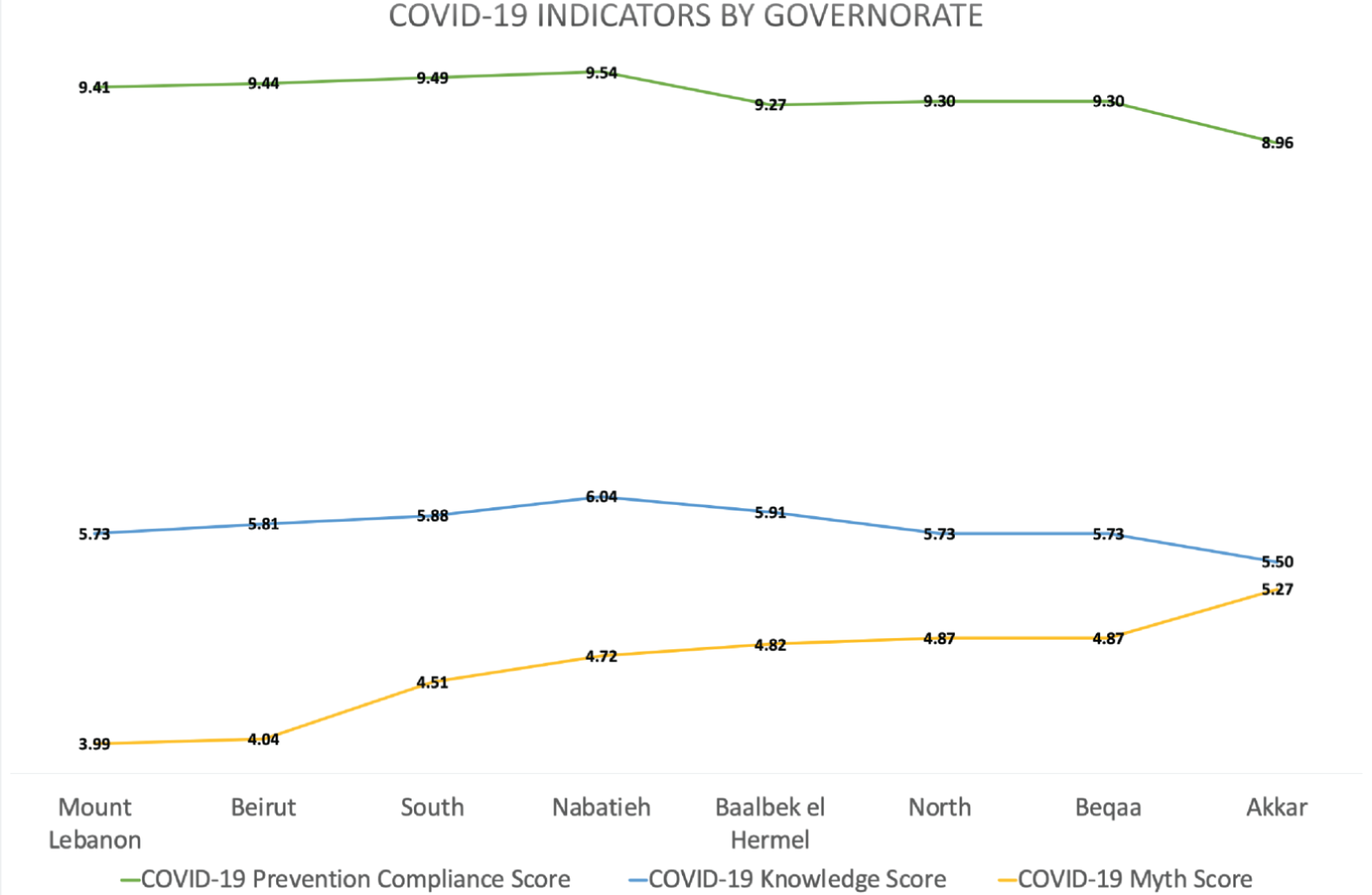Media Uses During Pandemics (Spring 2020)
This IMRT study investigates media and information uses of Lebanese residents during the 2019 novel coronavirus pandemic.
The research that examines media and information uses of people living in Lebanon during the COVID-19 pandemic was led by IMRT and included 12 researchers from four universities. It surveyed a random sample of 1, 536 individuals from all Lebanese governorates between March 27 and April 23, 2020, with a 51.6% response rate and a 2.5% margin of error.
The study focuses on the phenomenon of “infodemics” or the pervasiveness of fake news, false information, and widespread confusing and contradictory content. The researchers aim to understand which media and information sources people prioritize and trust during pandemics, their relationship to people’s knowledge, perceived knowledge, fears, belief in myths, and compliance with prevention measures.
The authors hope the study contributes to countering false and potentially life-threatening information and fake news related to the pandemic and to helping in the COVID-19 mitigation effort.
The full reports in Arabic and English are inked below. Some noteworthy findings include:

COVID-19 Indicators. The study develops three COVID-19 indicators and compares them across demographic groups and behavioral aspects. Chart 1 shows that almost all Lebanese say they comply with COVID-19 prevention measures and score very high on COVID-19 prevention compliance indicator. In addition, Lebanese residents display a moderate to high level of knowledge about the coronavirus, but many also believe in myths and false information about coronavirus and overall received a moderate to low score on the COVID-19 myth indicator.
Fear and Perceived Knowledge. Nearly all participants agree that they are knowledgeable about COVID-19 and that they have enough information to share about the disease. This reflects a high level of perceived knowledge, which is different from actual knowledge, but is important in predicting people’s compliance with prevention measures. Nearly all the participants agree that they are afraid someone in their family may contract the disease, although only half of them agree that the thought of COVID-19 makes them feel scared, another predictor of compliance with prevention measures.
Media Uses and Trust. People in Lebanon mainly receive and largely trusted information about COVID-19 from television. In addition, most people agree that media coverage of COVID-19 was comprehensive, and only a few say it was contradictory and exaggerated.

Comparing COVID-19 Indicators, Education and Media Literacy. Participants with higher education levels and those who had media literacy training are more knowledgeable about COVID-19 and less likely to believe in COVID-19 myths and false information. However, only 7% of the participants say they have received media literacy training in their lives.
Comparing COVID-19 Indicators and Trusting Sources. Those who trust doctors are also more likely to know about COVID-19 and to comply with prevention measures, while those who trust clerics and religious authorities score lower on the COVID-19 knowledge index and are more likely to believe in coronavirus myths and false information.

Other Comparisons. Among other comparisons, the study compared COVID-19 Knowledge, prevention compliance, and belief in myths across Lebanese governorates, income levels, and genders, and found many differences.
The study offers short-term and long-term recommendations to the Lebanese government, media, education system, healthcare system, and civil society groups.
Read the full PDF reports in English and Arabic (forthcoming June 29, 2020)
Watch the “Mitigating Infodemics” Study Launch in Arabic
Watch Media Uses During Pandemics - IMRT - LAU
Lead Researchers
Jad Melki, Ph.D., is director of the Institute of Media Research and Training (IMRT), chairperson of the Department of Communication Arts, and associate professor of journalism and media studies at the Lebanese American University (LAU).
Eveline Hitti, M.D., is chairperson of the Department of Emergency Medicine and associate professor of clinical emergency medicine at the American University of Beirut Medical Center (AUBMC).
Co-Researchers
Mirna Abou Zeid, Ph.D., is assistant professor of journalism and corporate communication at the Faculty of Information, Lebanese University (LU).
Ali El Takach, Ph.D., is dean of the Faculty of Mass Communication and Fine Arts and assistant professor of communication and media studies at Al Maaref University (MU).
Research Assistants
American University of Beirut Medical Center: Dima Hadid, Lara Ghandour, and Dana Naamani.
Lebanese American University: Ahmad Karakira, Hussein Kassab, Jana el Amine, Rana Tabbara, and Sally Farhat.
Funding
This study is funded in part by the German Academic Exchange Service (DAAD) through the Arab-European Association for Media and Communication Researchers (AREACORE).